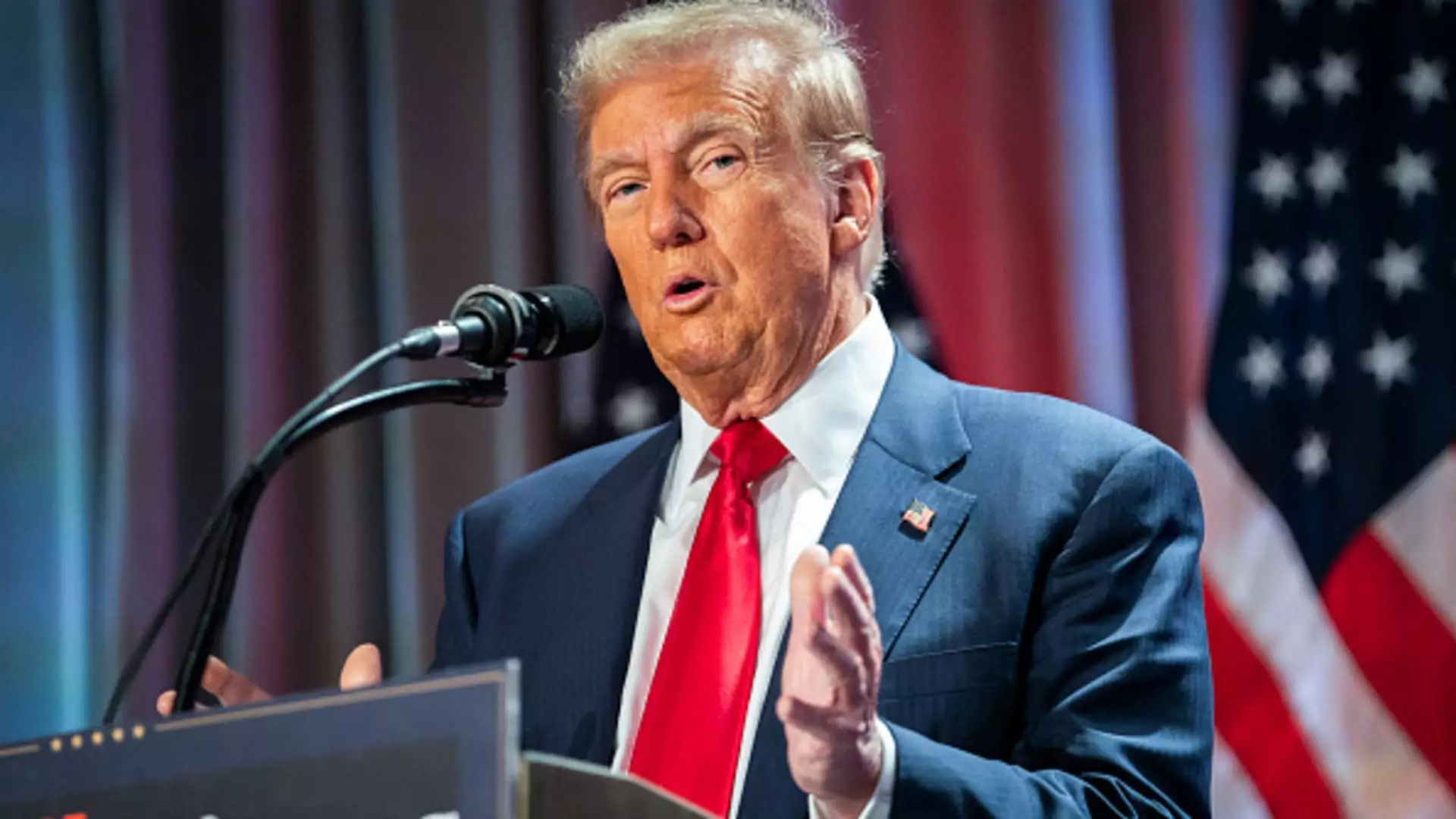As we navigate the complex financial terrain in the wake of Donald Trump’s election, the implications of his forthcoming tariff agenda are prominently on the minds of investors. The economic environment is poised for potential turbulence. John Davi, the CEO of Astoria Portfolio Advisors, emphasizes the need for a strategic approach to investments as the administration’s policies may usher in levels of inflation not previously anticipated. The changes proposed could fundamentally affect the sectors and stocks that investors focus on.
Davi’s investment philosophy advocates for a shift towards small-cap industrials over their larger counterparts. This approach hinges on the belief that small-cap companies are better positioned to capitalize on domestic growth driven by pro-business policies that are expected to emerge under the Trump administration. His assertion is corroborated by market trends, as evidenced by the Russell 2000 index’s performance, which has shown a healthy uptick since the election results were announced. In contrast to large-cap industrials, which may be more susceptible to international trade complications, small-cap stocks can benefit from a reinforced domestic focus, offering investors a potentially safer harbor in uncertain times.
With expectations of a robust pro-growth policy agenda, Davi’s inclination to favor U.S.-based investments appears judicious. His forecast posits that the political landscape will favor small-cap stocks through the midterm elections, where the balance of power may shift again. As such, Davi’s strategy of being overweight in U.S. equities seems not just optimistic but strategically sensible. The anticipation that smaller companies might thrive under favorable local policies aligns with a broader market sentiment, suggesting that cautious optimism could be a sound approach.
However, while there is optimism surrounding equities, Davi raises caution towards the fixed income market, especially in light of escalating budget deficits. The rising yields over recent months highlight the inherent risk associated with bonds, which can underperform in inflationary environments. Davi’s warning against heavy investment in fixed income assets resonates with a growing concern among investors about the long-term viability of traditional bond holdings. The market dynamics post-election signal that investors should be especially vigilant in monitoring bond market trends and adjusting their portfolios accordingly.
The investment landscape post-election is rife with opportunities but also significant risks, largely shaped by the expected policies of the new administration. Investors like John Davi are advocating for a shift toward small-cap businesses, emphasizing a domestic focus as the best strategy moving forward. Yet, the looming threat of inflation and challenges in the bond market necessitate a careful, calculated approach. As the economic landscape evolves, the agility to adapt strategies will be vital for navigating this uncharted terrain successfully.

